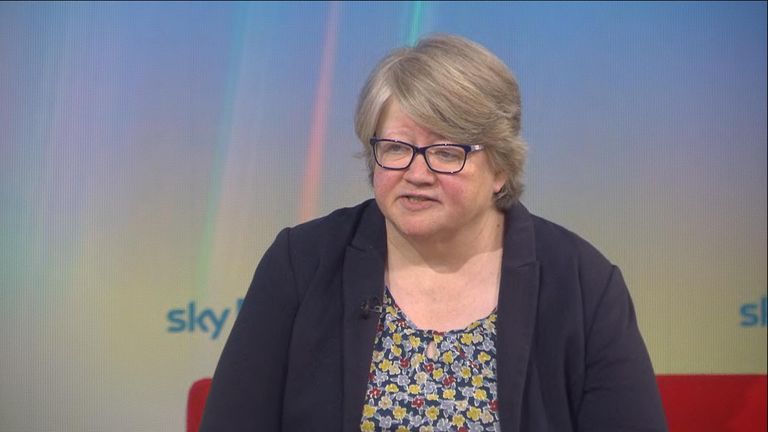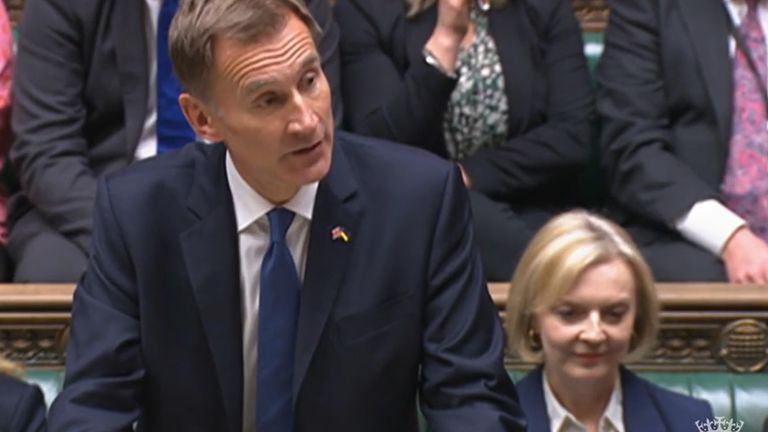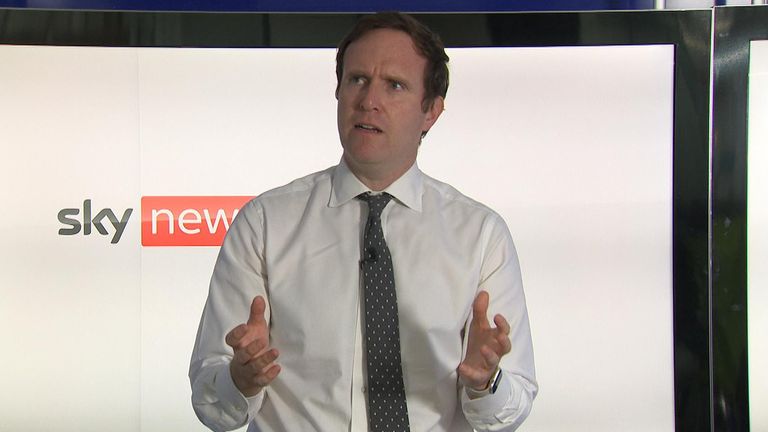
New figures are expected to show inflation returned to double figures in September due to still-rising food prices.
The Office for National Statistics will reveal the latest increase in the cost of living for UK households on Wednesday morning.
And economists have predicted it will show Consumer Price Index (CPI) inflation increased to 10% in September, compared with 9.9% the previous month.
There is likely to be an increase, despite falls in petrol prices (which dropped by around 4% over the month according to Forex.com) and used car prices.
Food inflation is predicted to have jumped to 14.3% from 13.1% in August.
The figures will be released with just 12 days left for new Chancellor Jeremy Hunt to find ways to gain economic confidence – and a plug for Britain’s funding gap – before the 31 October “medium-term fiscal plan” from the Office for Budget Responsibility (OBR).
Former Chancellor Kwasi Kwarteng‘s ill-fated mini-budget, just over three weeks ago, caused turmoil on financial markets. Economists estimated the government was facing a £60bn black hole in public finances following his announcements, which included £45bn of unfunded tax cuts for high earners.
More:
Watch – Chancellor’s statement in full
Read – Which Tory MPs are calling for Truss to go – and how could the PM be ousted?
Benefits and pensions implications
The September inflation figure has implications for other areas too, including benefits and pensions.
It will be used as part of the Work and Pensions Secretary’s annual benefits uprating review.
If the government decides to uprate benefits by inflation, this is the percentage they will be increased by, and will come into effect from next April.
It will also be used for reviewing the triple-lock pension commitment.
The triple-lock means pensions will rise by either average earnings, CPI inflation based on September’s rate, or 2.5% – whichever is highest.
With average earnings most recently hitting 5.4%, the triple lock should ensure pensions rising by the inflation rate in April next year.
However, on Tuesday, Downing Street indicated ministers could ditch their commitment to the triple lock as Mr Hunt finds ways to claw back funds.
It will not only be inflation figures that benefit claimants will have a keen eye on, The Times says there are fears too, the cap on the cost of social care – promised by PM Liz Truss a month ago – might be scrapped.
From October 2023 there is due to be an £86,000 cap on personal care payments for all adults of any age without exemption.
Once a person has paid enough to reach this limit, state support kicks in to cover their care costs.
The chancellor may decide that is something the government can no longer afford.
On Monday, Mr Hunt revealed he was reversing “almost all” of the tax cuts announced in his predecessor’s mini-budget and was also scaling back support for energy bills.
In an emergency statement, the chancellor said a 1p cut to income tax will be delayed “indefinitely” until the UK’s finances improve, instead of being introduced in April 2023 as previously announced.
Mr Hunt, who only stepped into the job on Friday, said the government’s energy price guarantee will only be universal until April – not for two years as originally planned.
As the economic fallout continues, a new survey has showed confidence among British businesses has dropped.
The Federation of Small Businesses (FSB) said its latest small business confidence index fell to -35.9 from -24.7, the worst reading outside of COVID-19 lockdowns.
The survey ran from 20 September to 4 October, covering much of the period since the prime minster and Mr Kwarteng first published their economic plans, which triggered a historic sell-off in British assets, a tumbling of the value of the pound, rocketing mortgage rates and pension funds being put at risk.













